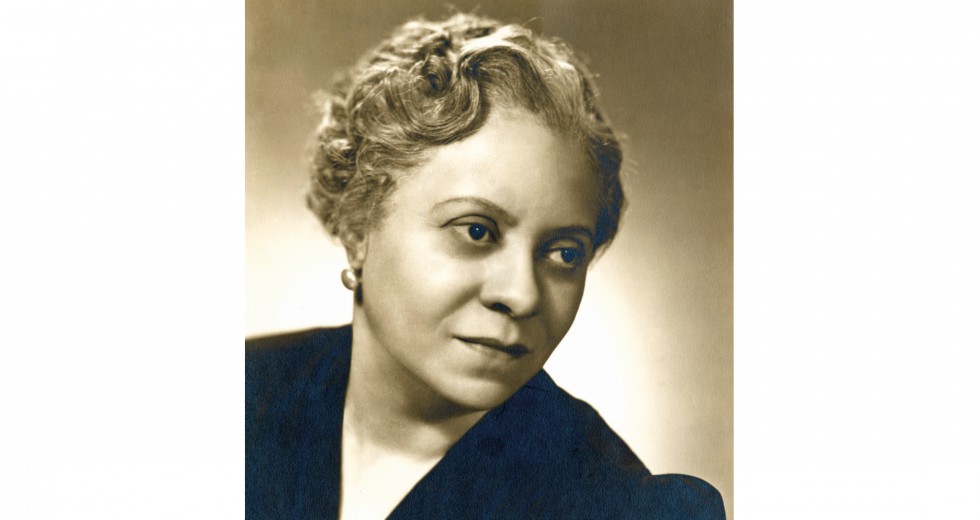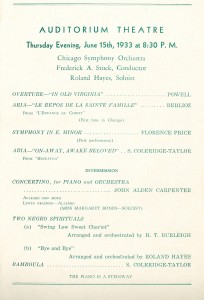
As part of the World’s Fair in Chicago—called A Century of Progress International Exposition in honor of the city’s centennial—the Chicago Symphony Orchestra presented a concert of music featuring not only African American soloists but also several works by black composers. Given on June 15, 1933, at the Auditorium Theatre under the auspices of Chicago Friends of Music, the program included compositions and arrangements by Florence Price, Samuel Coleridge-Taylor, Harry Burleigh, and Roland Hayes; Hayes also was tenor soloist along with pianist Margaret Bonds.
The centerpiece of the concert was the world premiere of Price’s Symphony no. 1 in E minor—winner of a Wanamaker Foundation Award in 1932—conducted by Frederick Stock. With this event, Price became the first black female composer to have a large-scale composition performed by a major American orchestra. The reviewer in the Chicago Daily News called the symphony “a faultless work, cast in something less than the most modernistic mode and even reminiscent at times of other composers who have dealt with America in tone. But for all its dependence upon the idiom of others, it is a work that speaks its own message with restraint and yet with passion. Miss Price’s symphony is worthy of a place in the regular symphonic repertory.”
Bonds was soloist in Chicago composer John Alden Carpenter’s Concertino for Piano and Orchestra. In the Chicago American, Herman Devries remarked that, “Carpenter’s charming concertino received exactly that sort of interpretation from Miss Bonds, who has both the technique and the imagination, the fingers and the mind, ably to reproduce Mr. Carpenter’s genial and persuasive music. The composer was present in a box [with George Gershwin as his guest] and quite openly pleased and perhaps a little moved at the warmth of the applause, directed for and at him.”
Hayes performed arias from Berlioz’s L’enfance du Christ and Coleridge-Taylor’s Hiawatha along with two spirituals (“Swing Low, Sweet Chariot” orchestrated by Burleigh and “Bye and Bye” arranged by Hayes himself). Coleridge-Taylor’s rhapsodic dance, The Bamboula, concluded the program.
Image above: Florence Price (George Nelidoff photo)
This article also appears here.
